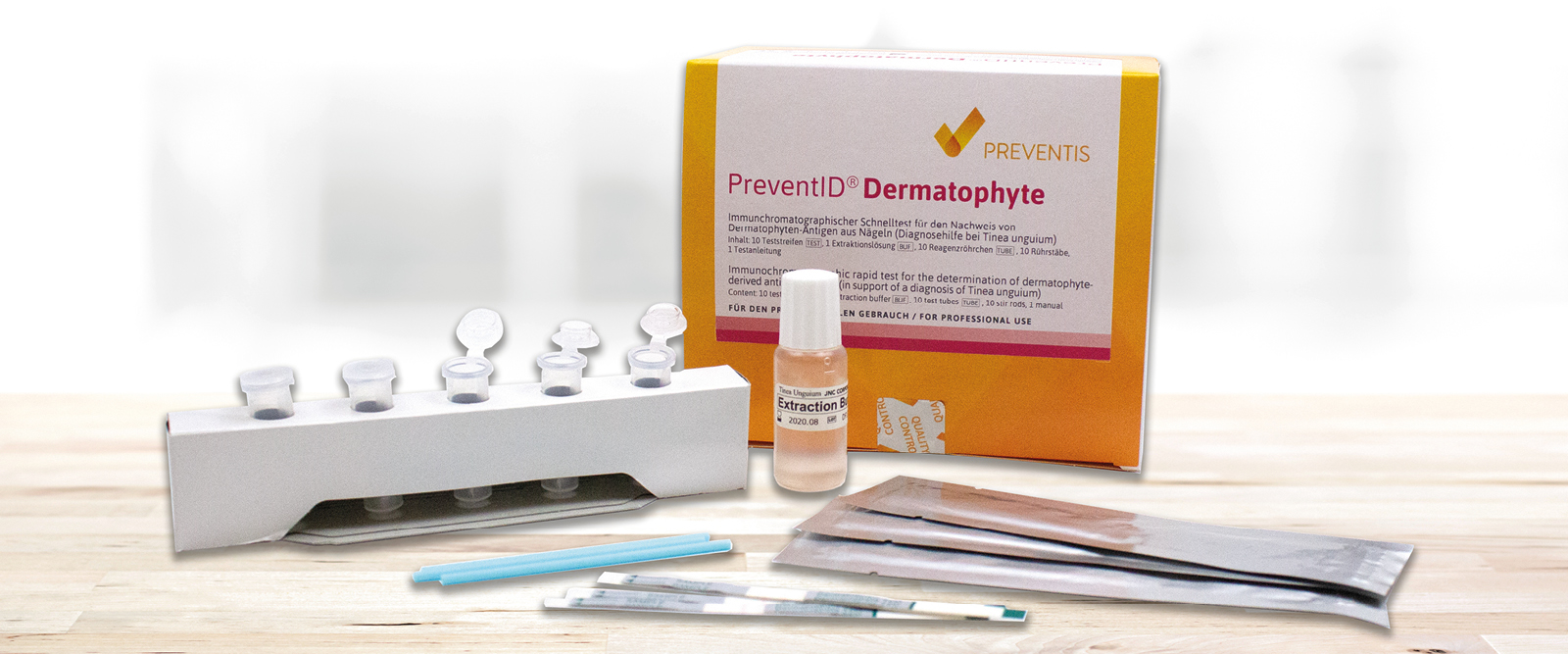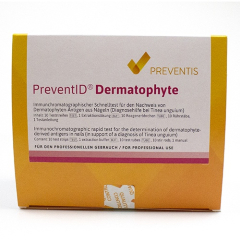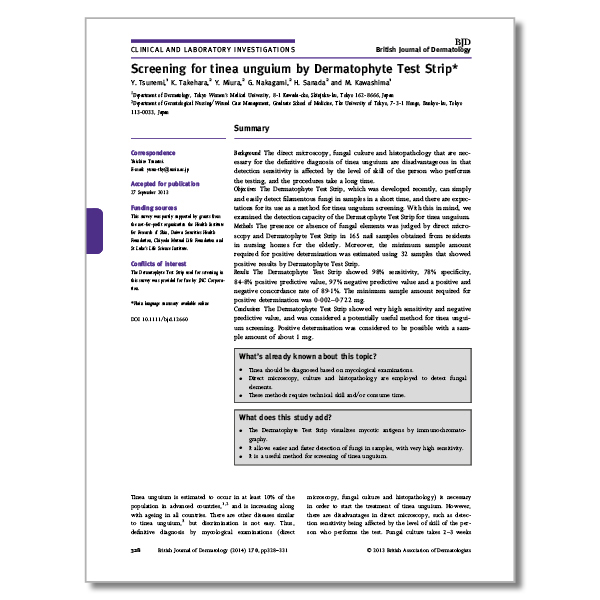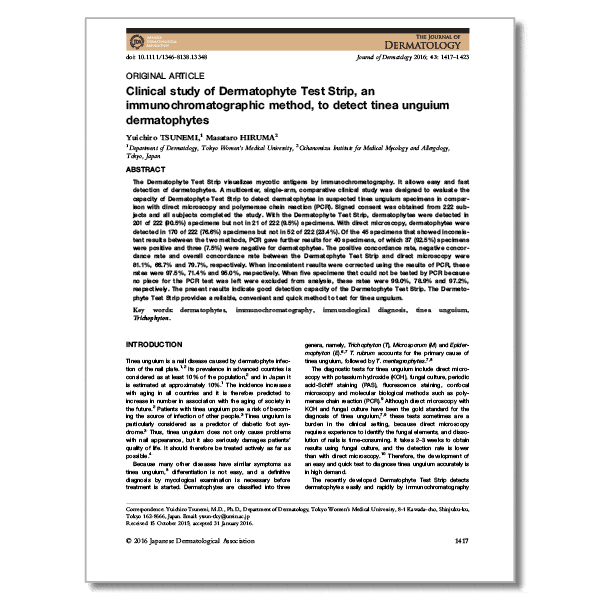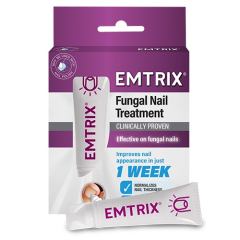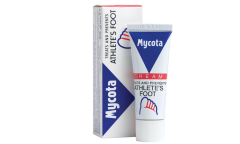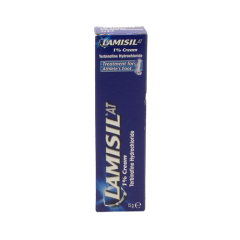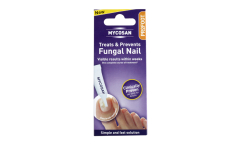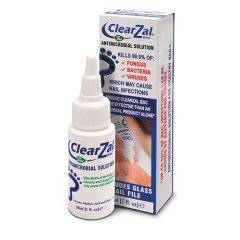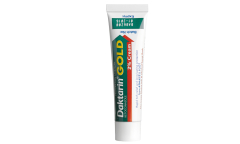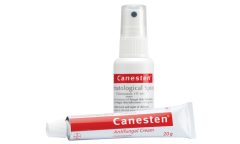PreventID®
Transform the way you diagnose dermatophyte nail infections with the PreventID test kit
Do you rely on sending off samples to a laboratory, only to wait days for a result? Why wait? PreventID is a simple test undertaken in clinic which returns clear and accurate results in just 5 minutes
How It Works
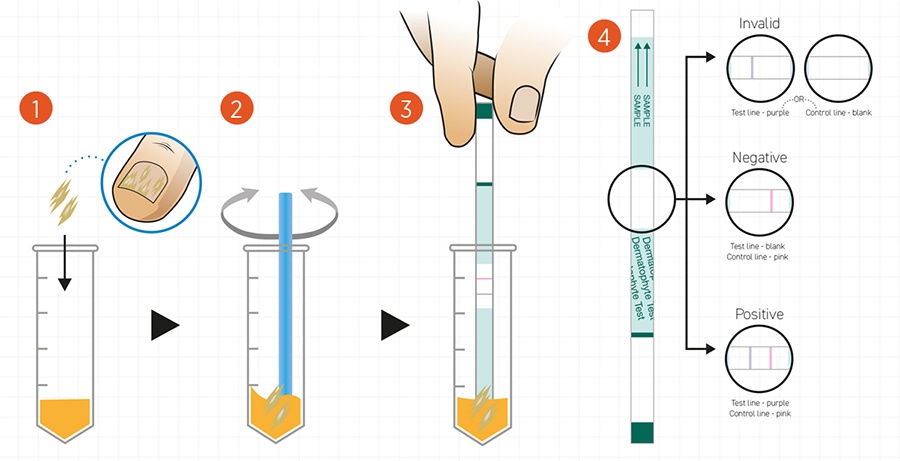

1. Collect and add nail specimen
2. Stir mixture 20 times
3. Insert test strip and wait 5 minutes
4. Determine result via test strip
Features and Benefits


Rapid results in just a few minutes, while your patient is in the chair


No need to send clippings to a laboratory and await results


Immediate diagnosis, allowing you to advise patient accordingly and treat the infection without delay


Easy to use


Can detect the presence of all common dermatophytes in just a small nail sample


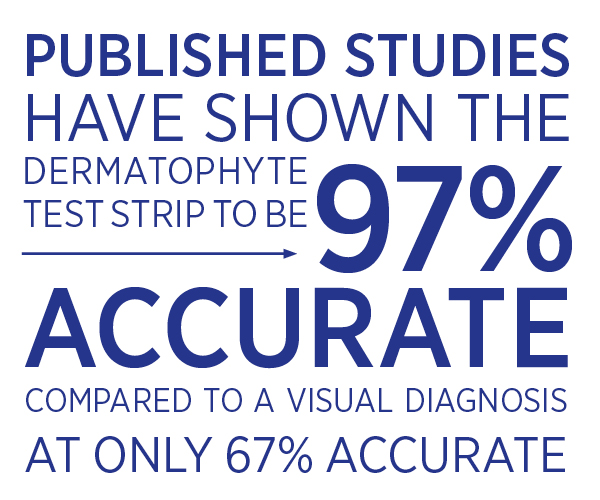

Tests Positive For All Common Dermatophytes, Including:
- T. mentagrophytes
- T. tonsurans
- T. verrucosum
- M. cains E.floccosum
- T. rubrum
- T. violaceum
- M. gypseum
The Dermatophyte Test Kit contains all you need to test nail samples…
- 10 x Test Strips
- 10 x Disposable Tubes
- 10 x Stirrers
- Test Strip Buffer Solution
- Cardboard Test Tube Holder
- Instructions for use
Frequently Asked Questions
- The Dermatophyte Test Strip (DTS) works by a process known as immune-chromotography, similar to that used in a pregnancy test. The DTS contains a monoclonal antibody (mAb) that specifically reacts with a polysaccharide that is present in the cell wall of dermatophytes. When an infected nail sample is added to the buffer solution the polysaccharide is released and picked up by the DTS. The fungal polysaccharide, if present, is absorbed into the test strip and then interacts with the mAb present in the strip. A pink line occurs in the test strip to confirm the test has worked whilst the appearance of a purple-brown line below it confirms the presence of dermatophytes in the sample./li>
- The DTS in published studies
has been shown to have an accuracy of 97% - meaning you can be confident that the test will give results.
- Due to the sensitivity of the test, only a small amount of nail specimen is required. In work conducted to date, less than 1 gram of infected nail can predict the presence or absence of infection.
- The test strip is able to rapidly detect the presence of different types of dermatophyte (T. rubrum, T. mentagrophytes [var. interdigitale], T. violaceum, T. tonsurans, Microsporum gypseum, M. canis and E. floccosum), including all the most commonly encountered species causing nail infection in the UK.
- Yes, the DTS has undergone rigorous testing and to date a number of peer reviewed publications documenting its successful use have appeared in the British Journal of Dermatology
and the Journal of Dermatology
.
- Yes, unlike traditional mycology, the test is unaffected by any anti-fungal treatments which may be present in a nail sample.
- Following market research in podiatry clinics, we would recommend that the patient should be charged at a minimum of £40 per test in clinic.
- Each kit contains all you need to carry out 10 tests, giving you a potential revenue of £400.
- The box contains 10 test strips; 10 disposable test tubes; 10 stirrers; a bottle of buffer solution; a cardboard test tube holder; and instructions for use.
- Because around half of dystrophic nails are not fungal.
- Because one may risk treating (and charging) a patient for something they do not have, leaving you open to potential litigation.
Studies have shown that even experts (dermatologists & podiatrists) at very best can only be around 67% accurate by visual diagnosis meaning they still get 1 in 3 diagnoses wrong. Clinical guidelines and published papers repeatedly state it is good practice to establish a formal diagnosis before treating. Why?
- The Test Strip box and its contents can be stored safely in a clean, dry environment (between 2 and 30 degrees centigrade). There is no need to refrigerate it.
- After 5 minutes has elapsed, the test strip result should be read within 30 minutes.
Evidence of the Tests Effectiveness
Our Top Selling Products....
What our customers say about the product...


